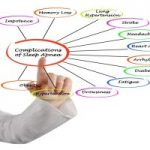
Heart failure after a heart attack may be reduced with a Mediterranean-style diet: Study
Heart failure after a heart attack may be reduced with Mediterranean-style diet. There have already been numerous studies demonstrating the benefits of the Mediterranean diet, which consists of fruits and vegetables, fish, whole grains, minimal sugar, and a glass of wine.
It’s a known fact that people who experience heart failure after a heart attack should be consuming a heart-healthy diet. Researchers have found the style of eating that helps reduce inflammation after a heart attack. Unhealthy eating, on the other hand, can promote inflammation, causing further damage to the heart.
In the study, mice that were fed a Mediterranean-style diet had improved heart health, reduced inflammation, and reduced kidney damage, whereas mice that were on a Western-style diet had greater kidney damage and inflammation. Continue reading…


In heart failure patients, novel implantable device may treat central sleep apnea. The implanted device is similar to a pacemaker and treats sleep apnea specifically in heart failure patients.
Lead author Professor William T. Abraham said, “The remede® system is the first fully implantable device to treat central sleep apnea in heart failure patients. Unlike traditional mask-based therapies – which have been shown to work only in some patients under certain conditions in CSA [central sleep apnea] – the remede® system is acceptable to patients and improves their sleep and heart function. Patients using the device tell us they haven’t slept so well in years. They have more energy and can do their normal daily activities without falling asleep. They also don’t have to fight with a mask.” Continue reading…
In heart failure patients with spinal fractures, osteoporosis is often untreated. Roughly one in 10 heart failure patients have compression fractures of the spine which could be detected by X-ray, but many of these patients don’t receive treatment in order to prevent these fractures.
In the study involving 623 heart failure patients, researchers found that 12 percent of the patients had moderate to severe vertebral compression fractures with 55 percent of them had multiple fractures. These types of fractures are indicative of osteoporosis. Only 15 percent of the patients with spinal fractures were being treated for osteoporosis. Continue reading…
Heart failure and heart attack risk increases in people with insomnia. The study followed 54,279 people aged 20 to 89 years for over 11 years. The researchers found that insomnia sufferers had a three times higher risk of heart failure and heart attack risk compared to those without the symptoms of sleep disorder.
Researcher Dr. Lars Laugsand explained, “We related heart failure risk to three major insomnia symptoms including trouble falling asleep, problems staying asleep, and not waking up feeling refreshed in the morning. In our study, we found that persons suffering from insomnia have increased risk of having heart failure. Those reporting suffering from all three insomnia symptoms simultaneously were at considerably higher risk than those who had no symptoms or only one or two symptoms.” Continue reading…
Elderly patients with cognitive impairment have a higher risk of heart failure readmission and all-cause mortality. The study found that patients with cognitive impairment had a 7.5 times higher risk for heart failure readmission and all cause death. The study suggests that in these patients, adhering to a medication treatment plan may get progressively worse, contributing to adverse outcomes.
Researcher Hiroshi Saito said, “Systematic reviews have shown that cognitive impairment is common in patients with chronic heart failure. However, the impact of cognitive impairment on the prognosis of heart failure patients is not known. Our study investigated whether cognitive impairment independently predicted the outcome of elderly patients with heart failure.” Continue reading…